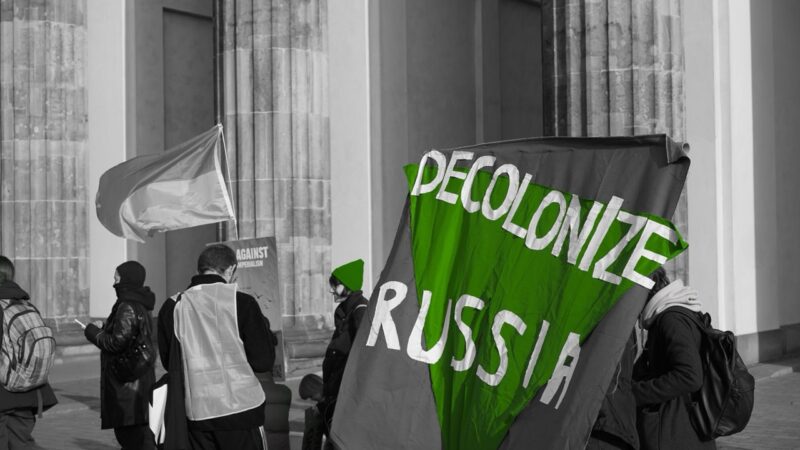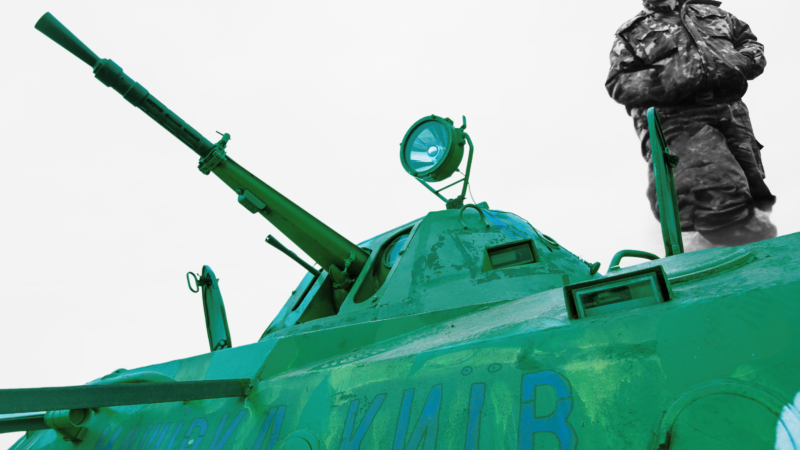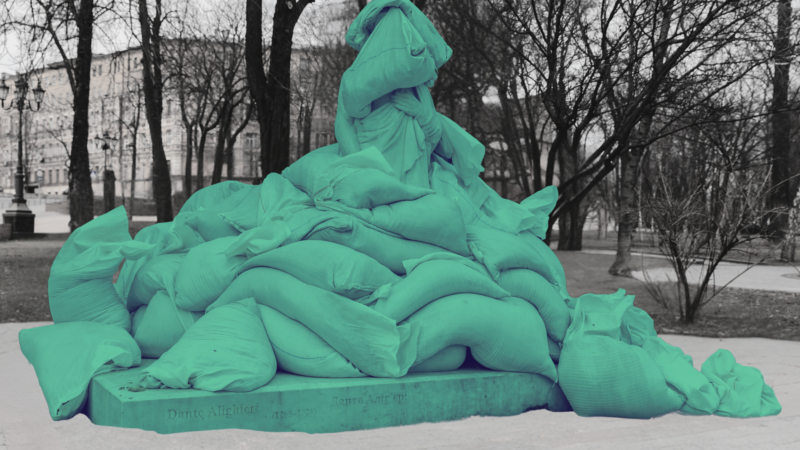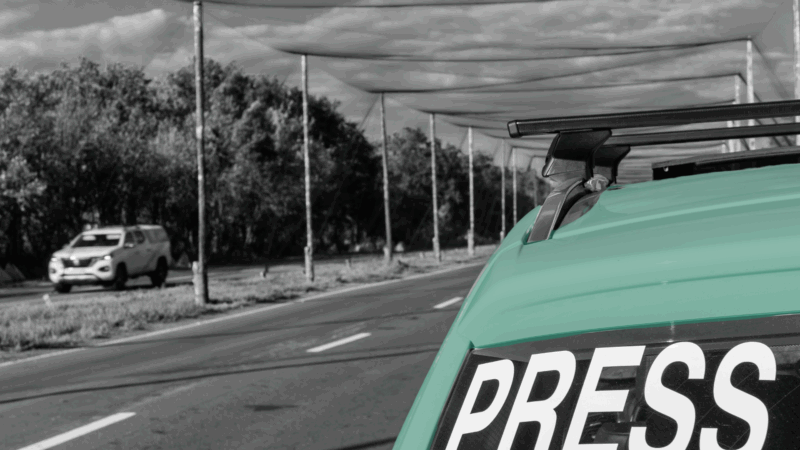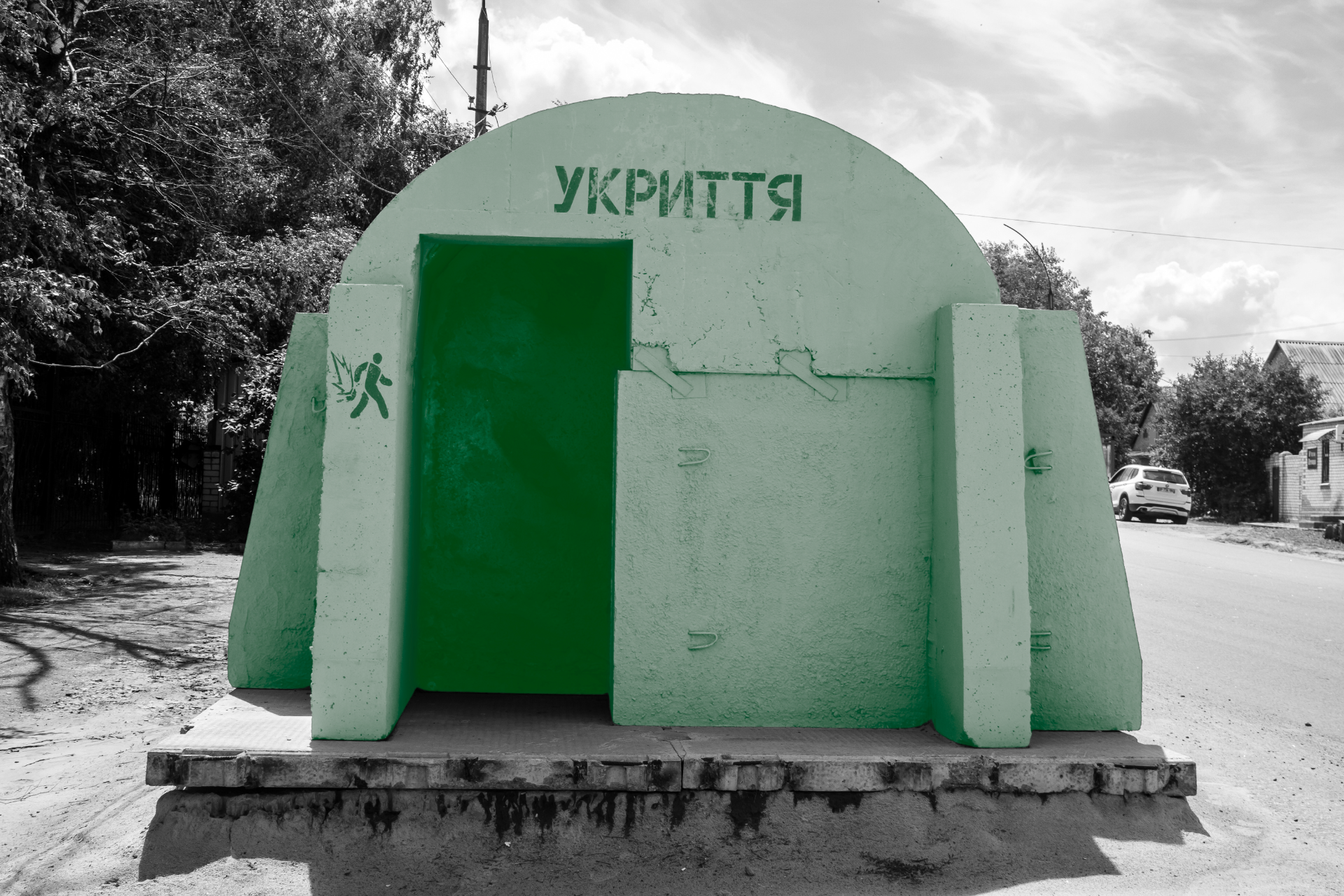Interview with Pavlo Smytsnyuk | The Vatican’s Ostpolitik in Ukraine: Balancing faith and politics in a time of war
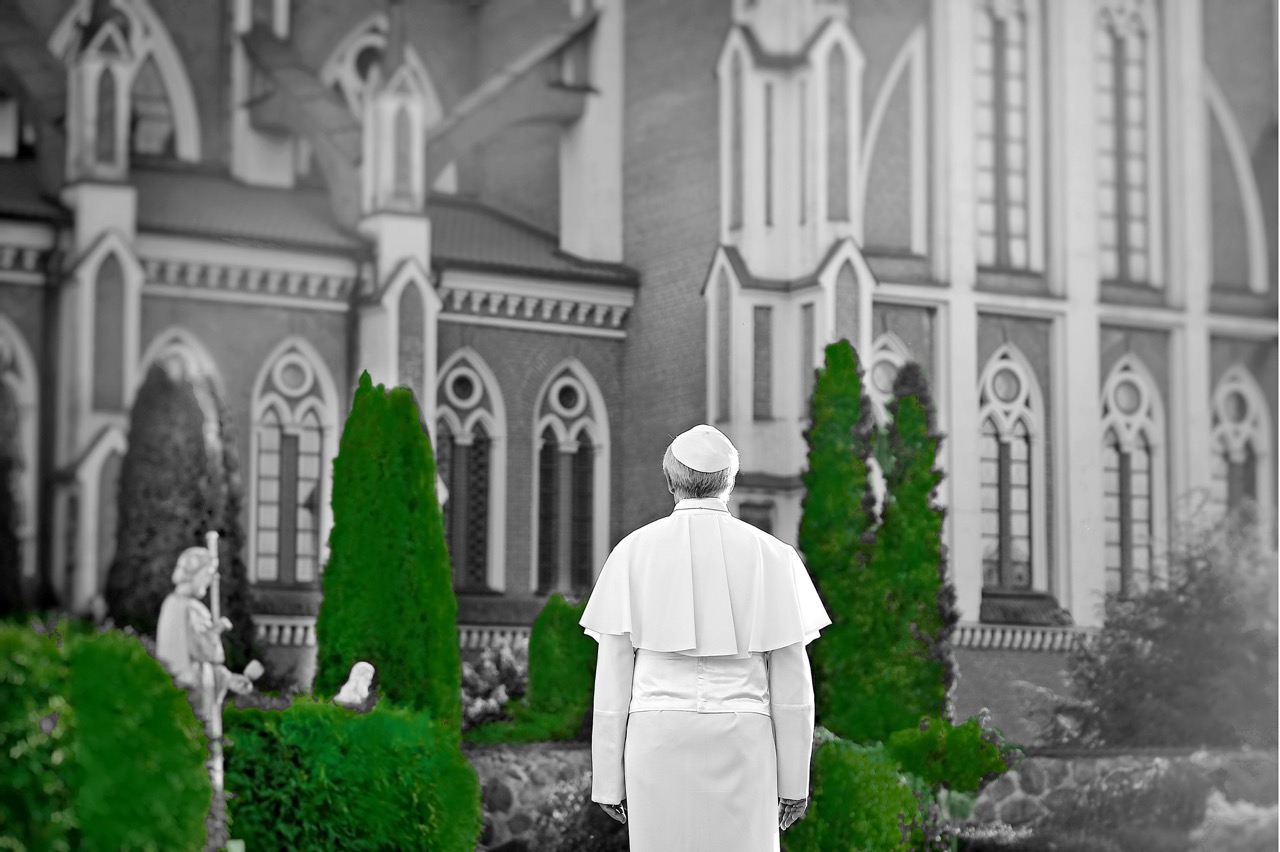
Sean Patterson: Long before the Russo-Ukrainian war, the Vatican’s so-called Ostpolitik was controversial in Ukraine. Can you tell our readers what that policy entailed and what its legacies are today?
Smytsnyuk: Ostpolitik is a term used by scholars to refer to the Vatican’s or other Western churches’ approach to the USSR, other East European socialist governments, and the Russian Orthodox Church (ROC). Ostpolitik is a way for the Vatican to move beyond its alignment with the United States and other Western powers and toward a more impartial or neutral foreign relations role.
It is true that the Vatican was afraid of Communism in Italy and Europe in general, both preceding and following the Second World War. At the same time, the Vatican had certain reservations about capitalism and consumerism, and thus did not want to align itself unconditionally with the West. Therefore, at a certain point after WW II, the Holy See became open to dialogue with the Soviet bloc and started entertaining relations with it. The Vatican may have considered this as a way to move beyond the spirit of the Cold War but also as a strategy to ensure that Catholics had at least some freedoms in the socialist-bloc countries.
Finally, Ostpolitik coincided with the thriving of ecumenism—i.e., interconfessional dialogue—and a desire for church unity. It was a period in which relations with the Orthodox Churches, and specifically the ROC, were important for religious reasons. However, it is not clear to what extent the Vatican was aware of the ROC’s dependency on, or even weaponization by, the Kremlin in its ecumenical activity and how it had to negotiate every step it took with Moscow.
Sometimes this dialogue was perceived as detrimental to the interests of local Catholics in the region. For example, Pope John XXIII’s successful attempt to bring Russian Orthodox observers to the Second Vatican Council (accompanied by KGB agents) was not well received by the bishops from the Ukrainian diaspora, whose colleagues were imprisoned all around the USSR. The ROC also asked that the Council not criticize communism or the Soviet government—a request which was taken into account by the Vatican. At the same time, in this context of building trust between the Vatican and the ROC, and using the presence of Russian observers in Rome, the Vatican secured the liberation of the Ukrainian Greek Catholic Metropolitan Josyf Slipyj, who, after 17 years of imprisonment, was released and came to Rome.
The Second Vatican Council is a good example of the logic of Ostpolitik: the relationship between the Vatican and the ROC, and implicitly the Soviet government, offered a possibility for achieving some gains for Catholics in the East. At the same time, it offered a certain amount of legitimacy to the Soviet regimes and created a skewed impression that there was respect for religious freedom in these countries.
I think this approach fell a bit out of favour with John Paul II, who came from Poland and did not trust socialist governments. However, with Pope Francis Ostpolitik has come into the spotlight again, and we can see the problematic nature of the Vatican’s engagement with the ROC and the Russian government. Some points have remained unchanged since Soviet times, such as the denial of patriarchate status for the Ukrainian Greek Catholic Church—the largest of the Eastern Catholic Churches. Issues have also arisen in relation, for example, to the new autocephalous Orthodox Church of Ukraine (OCU), which was created in 2019 and recognized by the Ecumenical Patriarchate (but not the ROC). Although the Holy See has relations with every other autocephalous Orthodox church in the world, it has avoided taking any stance on the OCU. I believe this is the “price” they have paid (at Ukraine’s expense) for keeping open communications with Moscow in the ongoing war.
Sean Patterson: You mentioned this attempt to remain neutral, and certainly the Vatican has tried to appear neutral in the Russo-Ukrainian war. How does this reflect its customary theology and policies? And what challenges has it faced in managing this particular war?
Smytsnyuk: The Vatican’s demonstrative “neutrality” has both a theological basis and more general political reasons. Theologically, catholic means universal, at least according to one possible explanation. As such, the Catholic Church tries to be a church for everybody—for people of every nation, of every ideology, every class, and so on. The Catholic Church sees its mission in the world to offer service to humanity—not only to the Catholics or even Christians but, in a way, to all of humanity. This is why Pope Francis has been so attentive to ecology; it is not strictly a Catholic matter but concerns everybody. Catholics are almost everywhere in the world—in Ukraine and also in Russia. The Vatican understands that anything it does could affect Catholics anywhere they live. In this context, being regarded as neutral and non-partisan is an important asset. At the same time, the Holy See’s neutrality protects it from interference by other powers and from being lobbied by them to take a side. It is not always a successful stance, but it seems to be an ideal that the Vatican strives to uphold.
This policy of neutrality was strongly criticized during the Second World War. The Vatican believed that criticizing the Soviet government would be used by Nazi propaganda and criticizing the Nazis would be used by Soviet propaganda. Today, historians and churchmen are rather critical of how the Vatican behaved during WW II. And I believe that many Ukrainians have read the neutrality of the Holy See in the present conflict through this lens of the Second World War.
One of the reasons why the Holy See wants to be neutral today is because it seeks to play a mediation role. One of the most recent examples during Pope Francis’ pontificate was the Vatican’s mediation between the USA and Cuba. Delegations from both countries travelled to Rome and held meetings on Vatican territory mediated by the Vatican’s Secretary of State, Cardinal Parolin, as a result of which a deal was finally brokered.
Due to the Vatican’s aforementioned spiritual aspirations, in addition to social and media pressures, the Pope wants to contribute to resolving the Russo-Ukrainian war. For this reason, he tries to maintain good relations with both Russia and Ukraine, although I do not know whether this is possible. You can see how after Pope Francis makes a statement supportive of Ukraine, he will follow it by saying something in praise of Russian culture, Dostoyevsky, or Orthodoxy. For example, a week after the Pope kissed a Ukrainian flag sent from the town of Bucha, he invited a Russian woman to hold a cross together with a Ukrainian woman during the Via Crucis [Way of the Cross] ceremony in Rome.
He tries to walk this very narrow path, but I do not see that he is reaching what he wants to achieve. It often seems that both parties are irritated by what the Pope says. Of course, part of the blame is Francis’ very idiosyncratic way of expressing himself and his relationship with the media, but I think this is a secondary issue. What is behind his approach is the desire to keep channels of communication open, and history will tell us whether he is wrong or right. So far, often Ukrainian Catholics have unquestionably been hurt by the Vatican’s approach to the conflict.
On the other hand, in certain regards no other power or international player has been more successful. We have seen several countries attempting to mediate between Ukraine and Russia, but they have failed to achieve much. Perhaps Turkey was the most successful, yet it managed to broker only a couple of things. Thus, we cannot say that the Pope is a failure while others make miracles. Nobody has managed to play an effective mediation role in this conflict, and it is probably because neither side is ready to sit and negotiate. Maybe, when the moment comes, there will be an opportunity for the Holy See to play some role in the process.
Sean Patterson: How does Pope Francis’ personal worldview shape the Vatican’s response?
Smytsnyuk: It is not always easy to follow Francis’ logic. Let me start by saying that the Holy See is a sort of absolute monarchy; the Pope has certain powers unlike any other head of state organization. Under certain conditions, he is even considered to be infallible when he speaks on matters of belief. It is a great deal of power, and the person of the pontiff is important—his tastes, his convictions, and his background. A case in point is Pope Benedict XVI, with whom we saw how much his theological academic background was part of his pontificate, and how much his ideas about what tradition is and how the Church should relate to it shaped the way the Catholic Church developed over those years. Every Pope leaves a very profound imprint on the Church.
Of course, Pope Francis is no exception. He comes from Latin America. For centuries, we did not have a Pope from outside Europe. If we speak about the war in Ukraine, we can see that there is a profound discrepancy between how Europe and the Western countries view this war and how people outside Europe in Latin America and the Global South approach it. Europeans are very aware of the role Russia played in the past century and of all the dangers of Russian imperialism and colonialism. However, if you come from Latin America, you may be confronted with imperialisms other than that of Russia.
My understanding is that Pope Francis has been more concerned with North American imperialism, both in Latin America and elsewhere. As a result, he might view Russia as a sort of counterbalance to America’s role in the world. If you read between the lines of what Francis says, sometimes it echoes or reminds one of Putin’s comments on multilateralism. I see that this more critical stance toward the West and its role in world history—compared to that of his predecessors—is influencing the way the Pope sees this war. He does not want to be a chaplain of NATO, and he doesn’t want to be seen as part of the Western world. In a way, he is a voice for the Global South.
A second element of Francis’ personality is that he is very much a man of dialogue. He is interested in interreligious dialogue, which he started with the Jews during his time in Argentina and then with Muslims. He made several trips to Muslim-majority countries and met with Muslim leaders. He was also the first pope to meet the Patriarch of Moscow, some years before this war started. Pope Francis is a man of dialogue, and to imagine that he should cease talking with Patriarch Kirill or seeking contact with President Putin is contrary to his nature.
China is another example. Pope Francis has reached out to China and often speaks with great respect for Chinese culture. In 2018 the Vatican signed a secret agreement with the Chinese government about the life of the Church in China and the appointment of bishops, despite criticisms from many Catholics in Asia and beyond. Pope Francis is a man of dialogue, which explains why he seeks exchange with everybody, Russia included.
The third point is that although he is an absolute monarch, he is also a bit “anti-establishment” in his behaviour. As the elected Pope, he decided not to move into the papal palace in order to be more independent from his institutional entourage. He still lives in the Vatican’s hotel, where you have people visiting all the time. He does not always follow all the bureaucratic channels. He often seeks advice from people he knew in the past and those with whom he meets and has cultivated friendships, from whom he receives information. The Vatican diplomatic community is not always aware of these relations and encounters. In his communication with journalists, he also skirts the usual channels. He likes giving interviews, and many things he says during informal conversations—for example, with his fellow Jesuits—are made public. Many of the problematic statements by Francis were made in these informal contexts—for example, in an interview during a press conference on board a plane, or when drinking coffee with friends. By contrast, the texts that he reads, which have passed verification through the channels of Vatican diplomacy, are usually much more balanced and create less controversy. However, Francis wants to keep his freedom; he believes that his non-bureaucratic way of relating to journalists and his immediate relationship with the people are important assets in his manner of ruling the Catholic Church. In certain regards, this may be true, but on matters as delicate as the ongoing war, if one wants to maintain the trust and relationship of both parties, then it is very difficult to be so immediate and not offend one side or the other. On the very specific issue of the war in Ukraine, Pope Francis’ style of immediacy represents a challenge more than an opportunity.
Sean Patterson: What has been the impact of the war on the long-standing dialogue between the Roman Catholic Church and the Orthodox churches and on ecumenical relations more generally?
Smytsnyuk: In general, the war has destroyed, as war usually does, more than it has built. The ROC—which is numerically the largest Orthodox church in the world—has largely discredited itself by supporting Russia’s aggression and by describing the conflict in terms of a “holy war.” As a result, many ecumenical partners in the Catholic Church and the Protestant churches do not feel that they can relate to the ROC as they did beforehand. The World Council of Churches, notwithstanding many calls to suspend the ROC’s membership, has tried to keep it on board, but recently it became very critical of the ROC following the publication of a pro-war document by the World Russian People’s Council, headed by Patriarch Kirill.
Problems with the ROC have led to broader difficulties in Catholic-Orthodox dialogue. If the largest Orthodox church—the ROC—is not engaged in dialogue, can theological progress be made? This problem began even before the full-scale invasion. Consider the situation with the Joint International Commission for Catholic and Orthodox Dialogue, which was established in the 1980s to discuss the various theological issues that have prevented full Catholic-Orthodox unity. When the Patriarch of Constantinople recognized the autocephaly of the OCU, the Synod of the ROC resolved that it could no longer be part of any institution chaired by the Patriarchate of Constantinople. This decision forced Russia to withdraw from the Joint International Commission, because it was co-chaired by a bishop of the Ecumenical Patriarchate. As a result, a lot of progress and relations developed over the decades have been greatly harmed. For example, a meeting between the Pope and Patriarch Kirill, which was first planned for Jerusalem and then Kazakhstan, never happened. Many people who, in a way, focused their lives on constructing relations with the ROC now see their efforts have borne no fruit.
However, an enormously important outcome of the Russo-Ukrainian war, starting with the Maidan Revolution, was the creation of the OCU, through which millions of Orthodox Ukrainians received canonical recognition. The OCU is now recognized by several Orthodox churches, recently became part of the Conference of European Churches, and is slowly establishing a relationship with the World Council of Churches. I think all of this would not have happened without the escalated invasion and the overall military conflict between Russia and Ukraine. This allowed millions of Ukrainians and their clergy to be brought out of a de facto canonical limbo that has existed since Ukrainian independence. I believe it is likely that the OCU will be more ecumenically active in the future. For decades it had been cut off from the academic, inter-confessional, and monastic lines of communication that exist in the ecumenical world, and now they have a chance to join the dialogue. I see signs of hope in this regard.
Sean Patterson: What role can religious groups play in reconciliation in your Ukrainian society after the war?
Smytsnyuk: The churches in Ukraine have a very high level of social trust. Until February 2022, they were almost always the institution that Ukrainians trusted most—more so than political institutions or the military. Things are changing slightly now, but nonetheless, Ukrainians trust their churches. I see the Maidan Revolution as a moment when the churches were able to push the protesters to negotiate between the opposition and President Yanukovych. The idea was very unpopular among the protesters, but the churches dared to say, listen, we need to talk, we need to negotiate. In theory, I believe that the Ukrainian churches are capable of making some steps toward reconciliation and peacemaking, even if those steps are unpopular in public opinion. If Zelenskyi were to attempt to do the same, it might be a problem for him to stay in power, but if church leaders take the initiative, they may have more room to maneuver.
However, there are several problems. The first problem is that the war is still ongoing and nobody knows how it will end. It is very difficult to speak about peacemaking and reconciliation under these conditions. The second problem is which of the churches can play that role? From a purely logistical point of view, the Ukrainian Orthodox Church (UOC)—the one which used to be, or still remains, under the Moscow Patriarchate, i.e., the ROC—would be the most effective, because it has members in both Eastern and Western Ukraine, even in the occupied territories, and maintains a lot of contact with Russia. Almost all the bishops of the Holy Synod of the UOC began their careers in Moscow, and they know both countries very well. However, the UOC has discredited itself to such a degree that society is very suspicious of it. Also, the recent situation with the Ukrainian government trying to ban the UOC has been a profound shock for its institutions, making them very defensive in response to the significant pressures being placed on them.
On the other hand, the Catholic and Protestant churches in Ukraine have much fewer relations with Russia. For them, it would be more difficult to play a reconciliatory role. Moreover, the new autocephalous OCU is often demonized by Russia. For these reasons, no Ukrainian church on its own could be successful in peacebuilding. Unless they act together, including to a certain degree the UOC, it is impossible to imagine any process of reconciliation.
Yet the Ukrainian Catholics and Protestants have a lot of support and relations around the world, and they are very much global churches. They can bring some foreign experience to the peacebuilding endeavours. Indeed, the Ukrainian context is very specific, unlike any other conflict, but I do think that certain dynamics are common to other contexts. For example, a few days ago there was an important conference hosted by the Institute of Ecumenical Studies in Lviv, which reflected on the Balkan Wars and that post-war reconciliation in an attempt to draw out some lessons for Ukraine. People from Serbia, Croatia, and Bosnia-Herzegovina shared their experiences. I believe that Ukrainian Catholics and Protestants can play the role of bringing forward foreign expertise from all denominations in order to contribute to this dialogue.
The last thing I want to say is that although we need to wait until the conflict ends to speak of reconciliation, certain things can be done today. Above all, preventing the incitement of hatred. There is a lot of hatred, which is understandable: if you lose your relatives, your job, and your house, if you lose your future, you cannot be very loving toward your enemy. However, the churches can play a certain role in preventing the dehumanization of the enemy and hatred from flourishing. As a scholar, I am stunned to see almost identical narratives on both sides that view the other as Satan or as not fully human. Of course, it’s much easier to be killing “orcs” or “fascists” than killing your fellow Orthodox. The majority of soldiers on both sides are Christian and probably Orthodox. Dehumanization should somehow be addressed by the churches. Secondly, concerning international humanitarian law, I was astonished by how little the churches in both Ukraine and Russia give attention to the treatment of prisoners of war and compliance with the rules of international law that require avoiding civilian casualties. It is very sensitive, and today we are also witness to conflicts with many more civilian casualties than in Ukraine. Nonetheless, the churches must try to elevate the ethics of war and start dealing more seriously with issues of international humanitarian law. It would provide a good foundation to do something more substantive in the future. If they want to maintain their social relevance, the churches should go beyond what their governments are saying and doing. Religious leaders in our part of the world do not need to be re-elected; their institutions have survived all sorts of political regimes and border arrangements, and they can afford to have a long-term perspective on matters. We can thus expect from them the ability to imagine peace between our nations which goes beyond political realism of the state bureaucrats.
